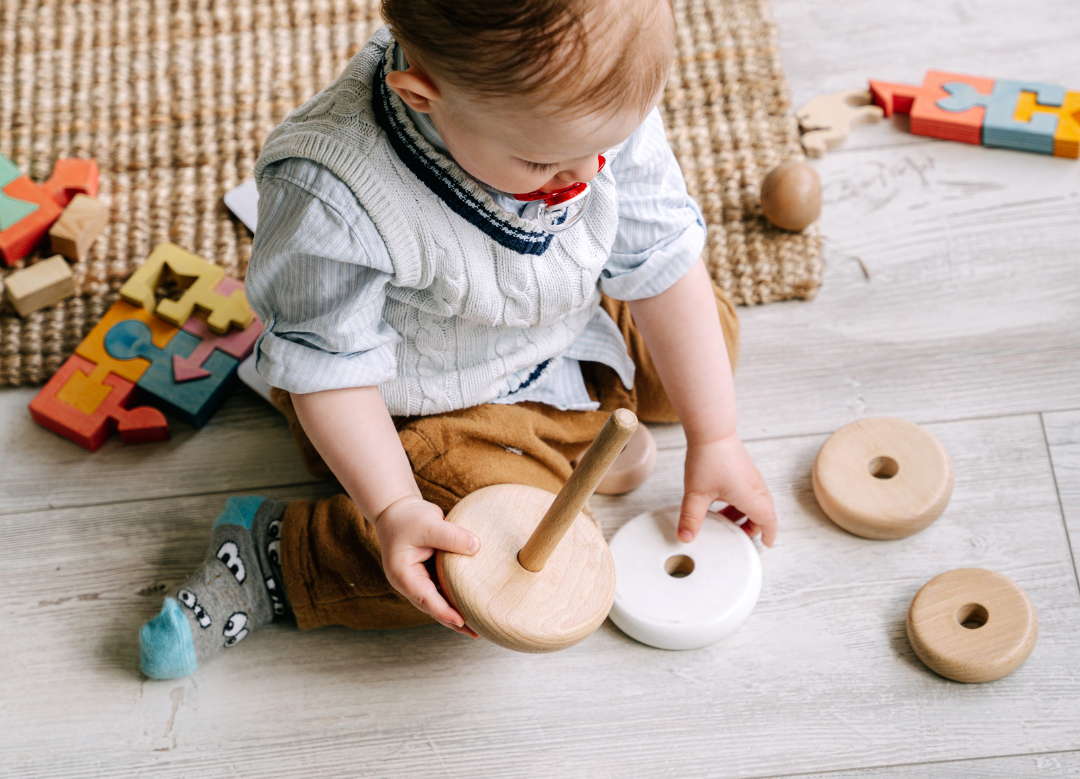Understanding Sleep Training

Sleep training is a term that often surfaces in parenting discussions, especially among those navigating the challenges of getting their little ones to sleep soundly through the night. What exactly is sleep training, and how does it work? In this guide, we'll talk about the fundamentals of sleep training, shedding light on its purpose and the mechanics behind this transformative process.
What is Sleep Training?
Sleep training is a set of strategies and techniques designed to help babies and young children develop healthy sleep habits. The ultimate goal is to teach them to fall asleep independently and stay asleep through the night. While it might sound like a dream for sleep-deprived parents, understanding the nuances of sleep training is crucial for success.
Establishing a Consistent Routine
Consistency is key in sleep training. Creating a bedtime routine signals to your child that it's time to wind down. This could include activities like reading a book, taking a warm bath, or listening to soothing music. Establishing a consistent routine helps set the stage for a restful night's sleep.
Sleep training is a personal journey for each family, and there is no one-size-fits-all approach. Understanding your child's unique needs and temperament is essential in crafting a sleep training plan that works for both you and your little one. While it may take time and patience, the rewards of a good night's sleep for both parents and child are well worth the effort.
Why Consider Sleep Training?
1. Promoting Healthy Sleep Habits
Sleep is crucial for a child's development and well-being. Establishing healthy sleep habits early on can lead to improved mood, cognitive function, and overall health. Sleep training aims to instill these habits, setting the stage for a lifetime of restful sleep.
2. Encouraging Independence
One of the primary goals of sleep training is to foster a sense of independence in children when it comes to falling asleep. Teaching them to self-soothe and settle into sleep without constant parental intervention can contribute to more seamless nights for both child and parent.
3. Enhancing Family Well-being
The sleep patterns of a child often impact the entire family. Sleep-deprived parents may find themselves facing challenges in their daily lives. Sleep training is a proactive approach to improving the overall well-being of the family unit, promoting a more harmonious and balanced household.
The Foundations of Sleep Training
1. Consistency is Key
At the heart of sleep training lies the principle of consistency. Establishing a regular bedtime routine provides a comforting signal to your child that it's time to wind down. Consistency in approach and response helps create a sense of predictability, contributing to a smoother sleep transition.
2. Understanding Each Child's Individual Needs
Every child is unique, and what works for one may not work for another. Successful sleep training involves recognizing and understanding your child's individual needs, temperament, and cues. Tailoring your approach accordingly fosters a more effective and compassionate sleep training experience.
Sleep training is a personal decision, and there's no one-size-fits-all approach. Parents may choose to embark on this journey for various reasons, from nurturing healthy sleep habits to promoting family well-being. As you consider sleep training for your family, remember that the ultimate goal is to create an environment that supports restful sleep for both you and your child.
In future posts, we'll dive deeper into when to start sleep training, common challenges faced by parents, and practical tips for a successful sleep training experience. Stay tuned for more insights into the world of parenting and peaceful nights.
Restful Baby Blog





